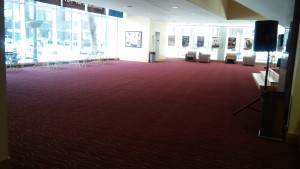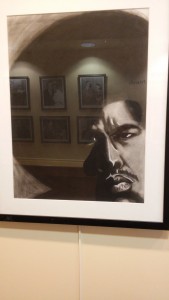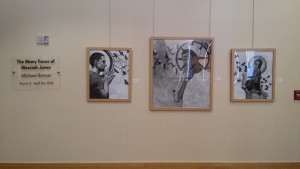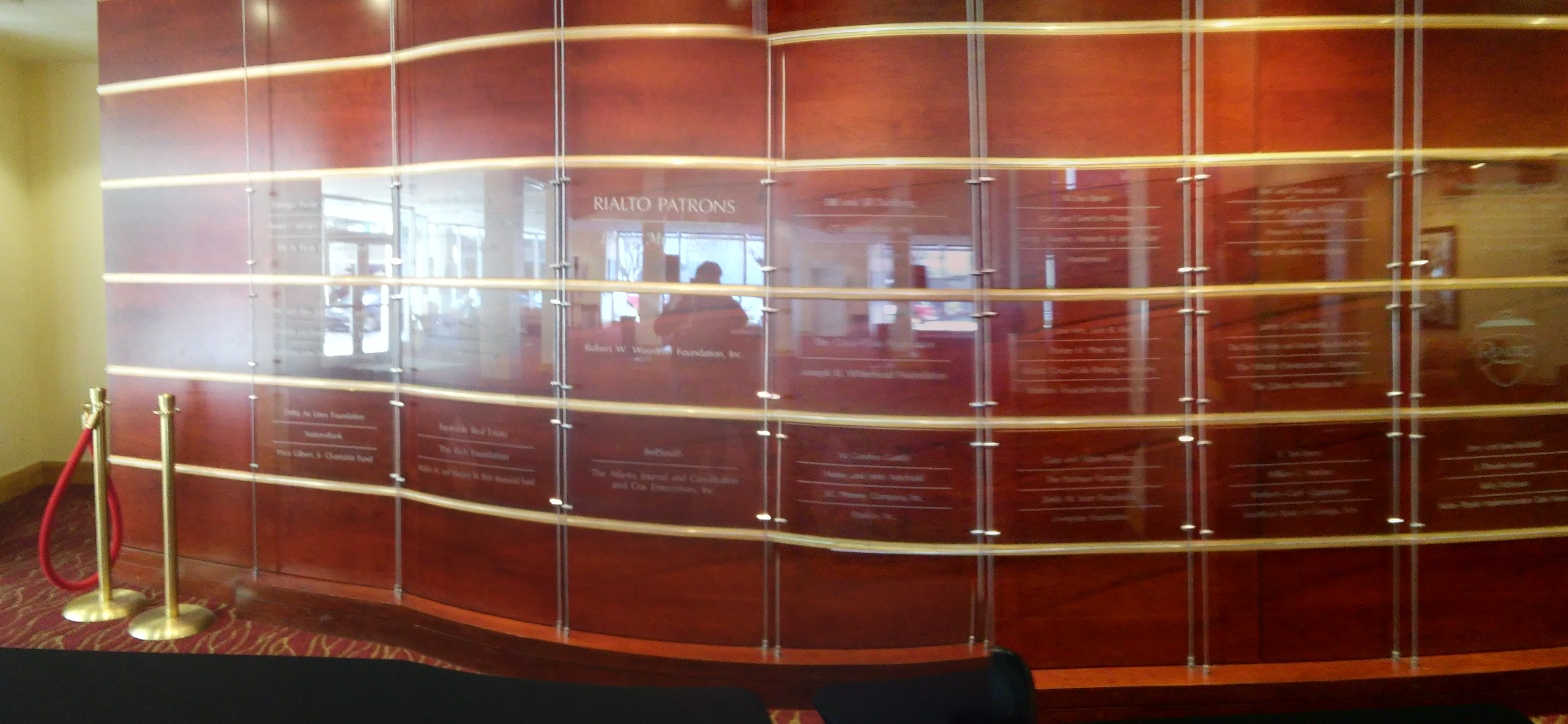The Rialto Center for the Arts, located at 80 Forsyth St NW in Atlanta, and operated by Georgia State University, was first opened in 1916 and was originally a movie theater. In 1962, the building was torn down and rebuilt, staying open until 1989, when it was closed due to the economy. In 1994, the Rialto went under construction as was reopened in 1996 and is now run by Georgia State University.
When I first walked into the lobby, the first thing that I noticed was the carpet (see below). It looked burgundy or red with curved lines that looked gold or yellow.
Based on the carpet, I assumed the rest of the lobby would be pretty elegant and nice looking.
I walked further into the lobby, towards the wall straight ahead of me sat in one of the chairs, observing the lobby. The main thing that heard was music playing. It sounded like jazz and it seemed like it was not near where I was. By looking around, I found out it was coming from a speaker on the other side of the lobby.
There was a lot of open space in the lobby on both sides. Most of the lighting was natural light from the windows. I did not see many people, maybe two. I figured it was not very busy around the time that I was there, which was 12 pm. I assumed the open space would be convenient for large crowds on the nights that there are shows.
When I looked at the wall behind me I saw a collection of artwork called “The Many Faces of Messiah Jones” by Michael Roman. It was drawings in black and white. I assumed the black and white colors scheme was a theme throughout the collection. As I walked around the lobby, I noticed more drawings from the collections. There were even a few of them upstairs near the doors of the theater. These are some of the ones I saw on the first floor of the lobby:
- The name of the collection
- Here are more drawings on the other side of the lobby
Here are the drawings from the second floor:
Another thing that I saw on the first floor of the lobby was an area that looked like a history display for the Rialto. It was not visible when I first walked into the lobby. It was in the back of the lobby, hidden by the stairs leading up to the second floor. In this area, there were posters, pictures , and some artifacts. There were also a few chairs and a small table. I assumed it was for soemone to sit and look around at the walls of the area. One word that I kept seeing when I was looking at the display, was “Landmark”. It made me think that the atmosphere of the Rialto was supposed to kind of historical. The fact that I kept seeing this word made me feel like it was important. I also noticed that all of the people in the posters and pictures looked different. They seemed to be from different backgrounds and cultures. It very diverse, with not only race, but also gender. I thought that the display was interesting but it seemed like it was hidden because it was not visible to me when I first walked in.
Near the front of the lobby on the right side, there was a curved wall, made out of wood, with glass panels on it. On the panels are the names of the Rialto Patrons. There were several names on the wall panels. Some of the names that were on a panel alone and some were shared with other names. I assumed that the names with their own panels donated the most to the Rialto. The wall was near the front of the lobby and visible as soon as I walked in. I assumed that the wall was important to the owners of the Rialto center and that they wanted to show appreciation to the patrons.












